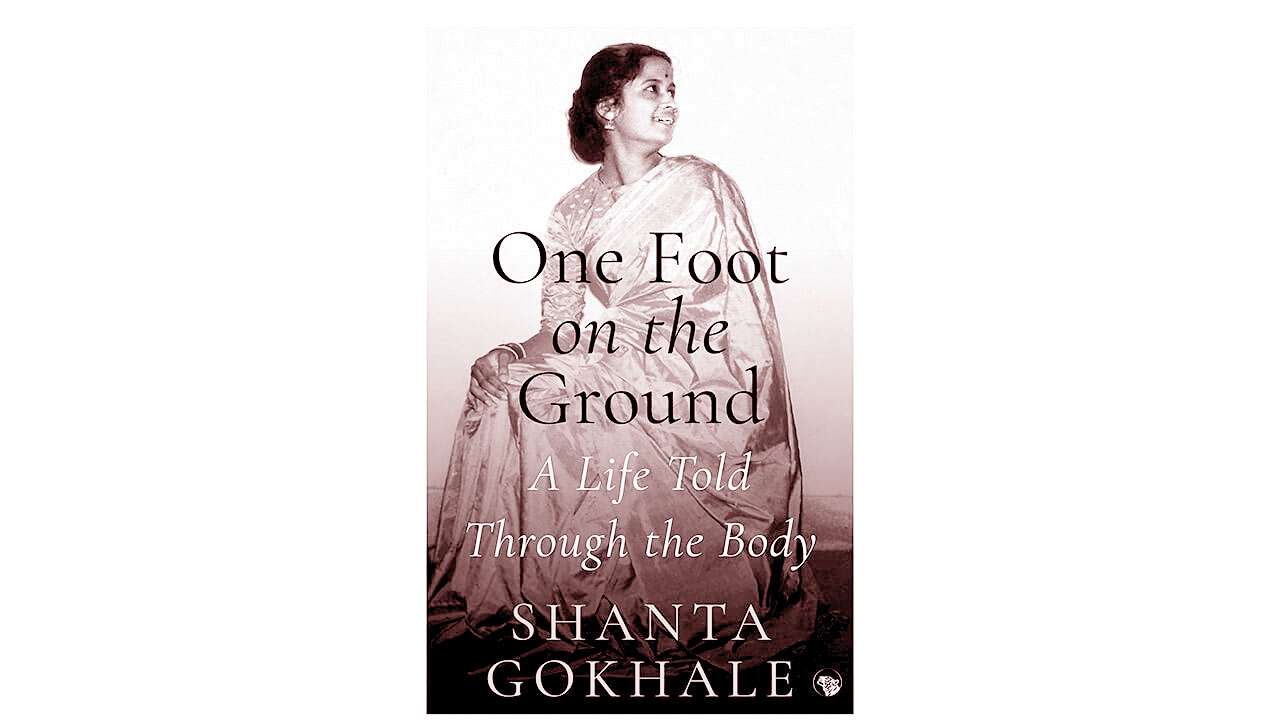
“You must be hungry. Come, eat!” said the chirpy voice from the kitchen. This was our host, who, hearing that funding did not permit a hotel stay in Mumbai for our team of six actors, miraculously managed to accommodate all of us in her single bedroom Dadar flat. After making a lunch fit for the gods, she rolled out endless puris for tea. Then she followed us to the theatre, not a crease in her Puneri saree, not a grey hair out of place, not a breath out of sync. You see, she was also introducing our English play to a seasoned Maharashtrian audience of natak buffs.
This was Shanta Gokhale — theatre historian, critic, playwright, culture columnist — respected for her scholarship, acumen and writerly integrity. This frail, soft-spoken, unassuming woman can be pungent and outspoken, and yet beloved for her warmth, wit and sense of humour.
Shanta is a rare intellectual who can analyse and dissect a work of art with clinical precision, even as she responds to it with empathy and love. She never allows prejudice to cloud her resolute feminism. And though we talked mostly about books and plays, I did get a few glimpses into her personal life. I felt that those uncommon life experiences shaped her unorthodox approach to issues.
Her just-released autobiography ‘One Foot on the Ground: A Life Told Through the Body’ shows Shanta going through those diverse happenings, not as a mute witness, but as an articulate participant, striving to make sense of life. How?
We know that Indian thought negates the flesh to wrestle with the soul. But Shanta focuses on the tangible body to grasp the intangible mind. After all, “you never know for sure whether (the body) is controlling the mind or the mind is controlling it.” As she explains, “To look at myself through the prism of the body…one organ at a time, remembering the circumstances that forced it upon my attention (that may lead to) another kind of knowledge than the one we normally aspire to.”
“Another kind of knowledge” is what the reader gets as well. The shift in perspective compels us to look at the human experience through an unfamiliar — at times uncomfortable — lens. Shanta puts her body out as it emerges from the womb, nourished by parental love in a progressive home, learns physical-mental co-ordination, revels in badminton and Kathak/Bharatnatyam, blooms with romance, loses and gains weight, manages setbacks. We watch that body handled and mishandled by doctors. Protected in the wrinkling years by son, daughter, and daughter-in-law, it becomes a nurturing playmate for grandchildren.
How many ordeals that body withstands! Attempts at sexual abuse in childhood, homesickness as a student in London, two disastrous marriages, struggles of single parenthood, financial ups and downs, and finally, a recognition of one’s own mortality with cancer. As these details unfold, we sigh over sepia visuals of a world gone by in India and England. We also realise just why we must understand the body to come to terms with what it holds within.
Is Shanta a writer because she is a reader? The opening chapter quotes from Tolstoy, Shakespeare, Frank McCourt, and Siddhartha Mukherjee and Thanissaro Bhikku, glancing at Roger Federer and Susan Sontag along the way. The end resounds with the voices of John Donne, Dylan Thomas, Samuel Beckett and Tukaram. Pages between twinkle with literary allusions — slyly bent to serve impish purposes. But neither erudition nor depth of thought block relish, because a blithe, hand-on-shoulder camaraderie “chinwags” us along as we partner the writer on her journey.
What stands out is the author’s refusal to blame others. She discusses her husbands — an alcoholic and a womaniser — with an empathy engendered by unshakeable self-respect and self-appraisal. And when Shanta laughs at herself, which she often does, we laugh with her, recognising the moment as our own.
The living writer ends with thoughts on death. Without faith in an indestructible soul, she is at peace with the idea of “a neat, clean, elegant full stop”. Nothing beyond. No slogan. No message. But, the book certainly says love life and demand everything life can give you. And oh, get new shoes. Walk on! After all, “I began walking at one-year-old and haven’t stopped walking at seventy-eight. Heaven’s Gate… seventy-eight… Bingo!”
The author is a playwright, theatre director, musician and journalist